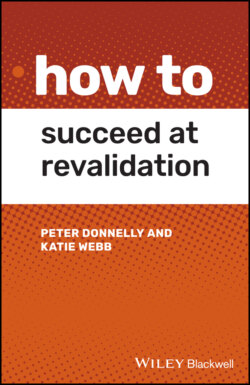Читать книгу How to Succeed at Revalidation - Peter Donnelly - Страница 19
Chapter Summary
ОглавлениеThe origins of health care and hence health professions date back to the beginning of Homo sapiens. There are a number of common threads in the evolution of all health care professions with early beginnings under the auspices of physicians, underpinned by faith, religion, and magic. With medicine, in its most general definition, as the profession evolved any external regulation was essentially non‐existent. The profession fought for the continuation of self‐regulation and the luxury of the autonomy that afforded its members. There was the struggle against regulation and licensing from the clergy. Then with increasing expectations from the public (that the profession was there to serve the community), successive governments moved more and more to legislative frameworks whereby regulation and licensing sat with bodies independent of the professions.
Table 2.2 The UK regulators and the number of registrants (as of 2017/18).
| Regulatory body | Professions covered | Number of registrants 2017/18 |
|---|---|---|
| General Chiropractic Council (GCC) | Chiropractors | 3255 |
| General Dental Council (GDC) | Dentists Dental technicians Dental nurses Dental hygienists Dental therapists Orthodontic therapists | 101 128 |
| General Medical Council (GMC) | Medical practitioners | 281 018 |
| General Optical Council (GOC) | Optometrists Dispensing opticians Student optometrists Student dispensing opticians Optical businesses | 30 097 |
| General Osteopathic Council (GOsC) | Osteopaths | 5239 |
| General Pharmaceutical Council (GPhC) | Pharmacists Pharmacy technicians Pharmacy business premises | 78 625 pharmacy professionals 14 348 pharmacy businesses |
| Health and Care Professions Council (HCPC) | Art therapist Biomedical scientists Chiropodists/podiatrists Clinical scientists Dieticians Hearing aid dispensers Occupational therapists Operating department practitioners Orthoptists Paramedics Physiotherapists Practitioner psychologists Prosthetists/orthotists Radiographers Social workers (England only) Speech and language therapists | 361 061 |
| Nursing and Midwifery Council (NMC) | Nurses Midwives Nursing Associates | 690 773 |
| Pharmaceutical Society of Northern Ireland (PSNI) | Pharmacists (NI) Pharmacy premises (NI) | 2479 pharmacists 548 pharmacies |
| Social Care Wales (SCW) | Social workers (Wales) | TBC |
The three examples, nursing, physiotherapy, and medicine, then evolved, and with the advent of science, statistics, modern techniques and technology became well defined, but with continuing overlaps in skill and competencies such as the ability to prescribe medicines. The scope and hence status of all health professions is constantly evolving. A number of new professions in the sector (with Physician Associates as an example) has led to further blurring of professional boundaries.
It could be argued that recent consultation and the agreed recommendation does move health regulation further along the continuum from entirely self‐regulated with no oversight, as was the case circa 50 years ago (Neighbour 2005), to a position of more rigorous governance where the voice and needs of the “public” play a bigger part.
If one reflects on the history of health professionals, clear silos existed in the 1700s, and although the origins can be traced back in history, they are very much alive today (McCarthney 2016).
